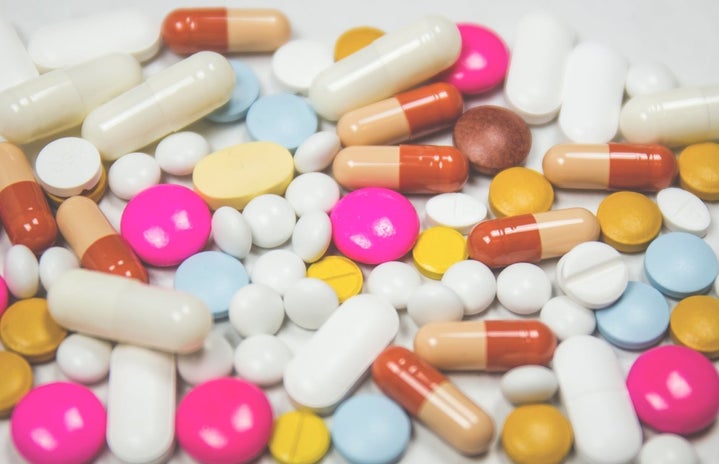The first semester of college is full of learning, adapting, and growing. You have new liberties while balancing acadmeics, personal wellness, work, and a social life. On top of the usual challenges of transitioning to college life, I was battling an undiagnosed medical condition.
Most of that first semester was me attempting to be the perfect student and social butterfly that I felt I had to be in order to be successful. Yet, I barely had any energy to attend lectures, I had major issues with trying to sleep and no matter how much water I drank or food I ate, it was never enough. I kept researching all my symptoms online in the the hopes that Dr. Google would tell me how to fix the ongoing issues without me needing to see a real doctor. (I definitely don’t recommend this and advise to seek out a professional if you think you have any medical condition or health issue). Uninterested and dismissive of what the internet kept telling me, I persisted throught the semester as symptoms grew worse. My emotions slid into a prolonged unhappiness filled with self-doubt, feeling like a failure and complete lonliness. The only way I combatted my mental state was to distract myself with a social life. My attempt to disguise my innermost feelings was to project my ideal self to everyone around me. For some fleeting moments I felt like a normal college freshman. I made some amazing memories and my best friends ever that first semester of college! (Shout out for them for being so supporitve during a rough time!) But I couldn’t outrun my symptoms much longer. I urgently needed to go to the bathroom every 30 minutes, I drank gallons of water a day, and I was exhausted. My breaking point hit when I was taking my calculus final and almost peed myself in front of the hundreds of other students taking exams. I just thought…I need help.

During winter break of freshman year, I was diagnosed with Type I diabetes. I was beyond shocked, especially because no one in my entire family has Type I. The cruelest part of my diagnosis was the constant confrontation of my fears of blood, needles, and doctors. I was scared, lonely, and felt disappointed in my body for failing me. The scarier part was learning how truely dangerous it was for me to ignore my symptoms for so long. From the day I was diagnosed until forever I am obligated to check my blood sugar levels, inject insulin, and monitor my exercise and nutrition. Luckily, my team of health professionals made sure I was educated about my condition (I’m still learning new things about Type I!) and offered numerous resources. My family and friends were also very supporitve during the tumultuous initial stages by reminding me that adapting to my new life as a diabetic was going to take time and to be extra kind to myself during the non-linear learning process.
Being at college with a chronic condition is something I have learned to appreciate, because it forces me to prioritize my health. There are moments when I wish I didn’t have to inject my insulin or experience low/high blood sugars, but it all has become such a normal part of my life that it isn’t scary anymore. I consider myself fortunate to have learned the importance of caring for my body while I’m young so I can live a long and fulfilling life. I’m eternally grateful for my friends, family, and professors who all have been so supportive and understanding about my diabetes by offering their advice and resources. The greatest thing my diagnosis gave me was the ability to be normal again. I am confident in my ability to care for myself, manage my diabetes, and know when to ask for help!
For additional information about living with diabetes here are some of my favorite resources:
https://collegediabetesnetwork.org/
https://www.joslin.org/patient-care/adult-care/young-adult-program



